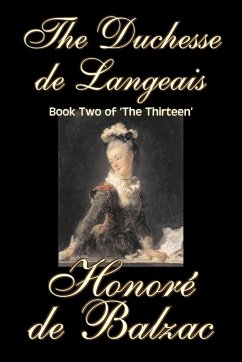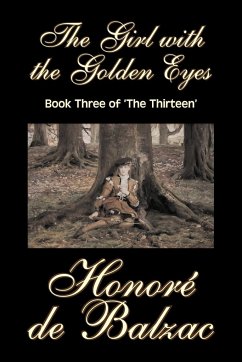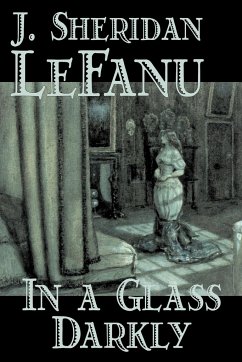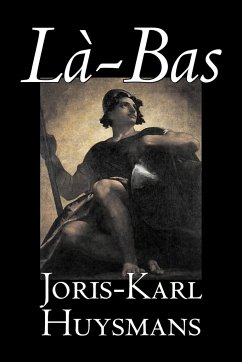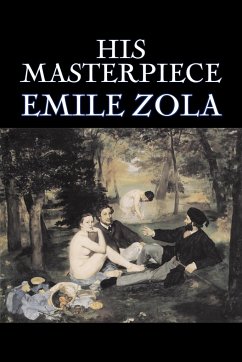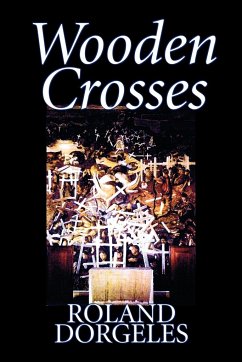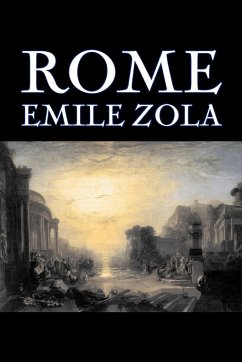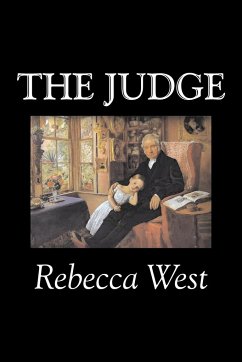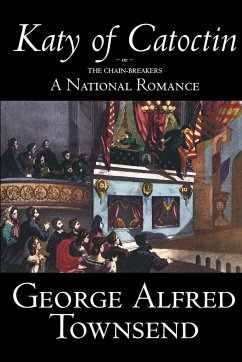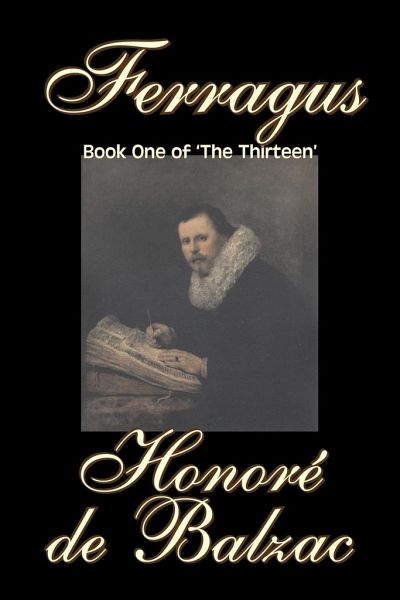
Ferragus, Book One of 'The Thirteen' by Honore de Balzac, Fiction, Literary, Historical
Versandkostenfrei!
Versandfertig in 1-2 Wochen
13,99 €
inkl. MwSt.

PAYBACK Punkte
7 °P sammeln!
To tell the truth, there is more power than taste throughout the "Histoire des Treize," and perhaps not very much less unreality than power. Balzac is very much better than Eugene Sue, though Eugene Sue also is better than it is the fashion to think him just now. But he is here, to a certain extent competing with Sue on the latter's own ground. The notion of the "Devorants" -- of a secret society of men devoted to each other's interests, entirely free from any moral or legal scruple, possessed of considerable means in wealth, ability, and position, all working together, by fair means or foul, for good ends or bad -- is, no doubt, rather seducing to the imagination at all times. . . -- from George Saintsbury's Introduction



